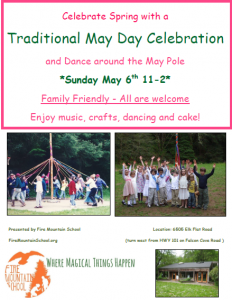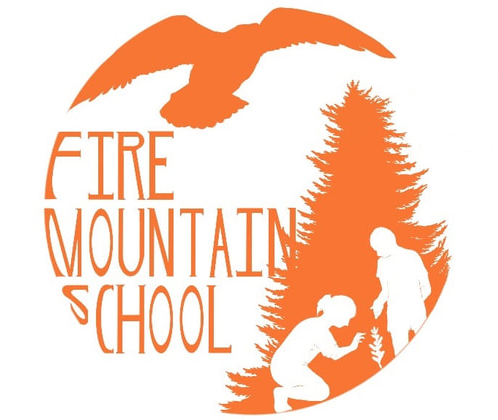By Liz Beckman, for Fire Mountain School
Imagine this: 1st and 2nd graders studying their local watershed and visiting the local water department so that they can understand where the water they drink comes from and why we have a responsibility to keep our streams and rivers clean. Or this: 3rd and 4th graders surveying the number of visitors for the local state park to determine if needs of the visitors are being met. These are hands-on experiences for elementary students, but they are also examples of democracy in action, an effort to educate young citizens who will understand the importance of being actively engaged in their communities.
In place-based education schools, local organizations become partners with students. The authenticity of each project they create together guides students to feel like citizens who are participating in their community.
Place-based education (PBE) is a style of schooling that immerses students in local history, cultures, environment, economy, literature, and art, using these as a foundation for the study of language arts, mathematics, social studies, science and other subjects across the curriculum. PBE emphasizes learning through participation in service projects in the immediate schoolyard, neighborhood, town or community.
Many parents focus on exposing their children to the big wide world and have them take in the magnitude to enlighten and enrich them. But children tend to focus on their immediate surroundings. While the vista may be spectacular, the rocks underfoot or the moss growing on the bark of a tree are closer and often of more interest in their world. Encouraging curiosity helps children build confidence to explore a bigger world.
The goal of PBE is for children to learn about and love the place where they live enough to want to become actively engaged in caring for their community. When students are engaged in projects that satisfy some levels of their curiosity, they become interested in acquiring the core academic skill of reading, writing, and math. These subjects become tools to explore the world rather than simply assignments. They begin to see that learning is not something that you just do at school – it is part of everyday life.
More than 100 years ago, John Dewey wrote about the value of teaching hands-on democracy. He wrote, ”education is the preparation for the social position of life, the preparation of the individual to play his proper part in the community or state of which he is a member.”

May Day Celebration is coming up at Fire Mountain School on May 6th. Music, food, cake and best of all, dancing around the May Pole! Bring your families and friends, Sunday 11-2.
This column is submitted by Fire Mountain School. Fire Mountain has a Mission to Nurture each child by providing a joyful, place-based learning experience. It’s an independent school nestled in Falcon Cove surrounded by Oswald West State Park. By providing a foundation of experiential, hands on education for the whole child, the Fire Mountain Community nurtures healthy, happy, lifelong learners.
FireMountainSchool.org firemountainschool@gmail.com


